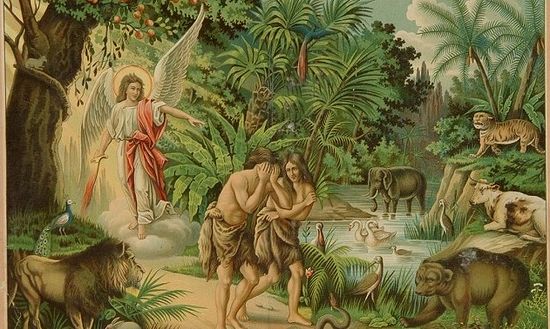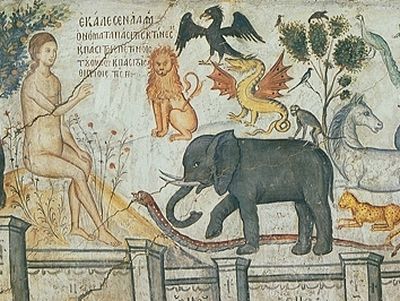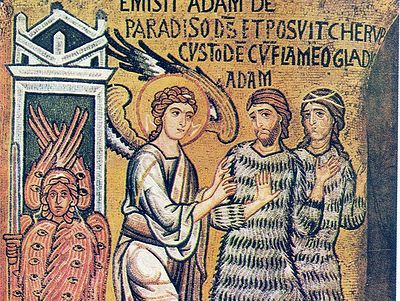It is quite common among Orthodox saints to view God’s activities in the world through the lens “God is love.” They felt this was a non-negotiable truth. If something reported in Scripture does not seem consistent with a loving God, then the issue is we don’t understand the story, how it was written and/or how it is to be interpreted. The fault is not with God but with our limited understanding of the world. There is mystery in the world, and much happens that we simply don’t understand because we don’t have the big picture – we can’t see how God sees the world, and so our interpretation of events and logic are very limited.
These saints were totally OK with moving away from a literal interpretation of a text if the literal interpretation seemed to show that God is not love. Some Patristic writers and Orthodox saints for example interpreted God’s comment to Adam that if you eat the fruit of the Tree of Knowledge you will die as a loving warning to Adam rather than as a threat of punishment. And they saw death not as punishment but God preventing a person from growing endlessly in evil – terminating life was to stop the negative growth of evil in a person. God thus uses death to stop us from increasingly falling under Satan’s power. As an example, St Isaac the Syrian writes:
“Just as He decreed death, under the appearance of a sentence, for Adam because of sin, and just as He showed that (the sin) existed by means of the punishment–even though this (punishment) was not His (real) aim: He showed it as though it was something which (Adam) would receive as repayment for his wrong, but He hid its true mystery, and under the guise of something to be feared, He concealed His eternal intention concerning death and what His wisdom was aiming at: even though this matter might be grievous, ignominious and hard at first, nevertheless in truth it would be the means of transporting us to that wonderful and glorious world. Without it, there would be no way of crossing over from this world and being there.”
So though death appears to be a punishment, God was actually hiding his intention. His intention was to give us eternal life, but the way to that end was through death – the death of the Son of God on the cross.
Why can’t we enter heaven without dying? Because sin that clings to us cannot enter heaven – death purges us of sin, we resurrect to a new life free of sin. This is the imagery of baptism as well – we die with Christ and are buried with Him, but then resurrected to the new life free of sin as our sins remain in the watery grave of the baptismal font. St. Isaac continues:
“Again, when he expelled Adam and Eve from Paradise, He expelled them under the (outward aspect of anger: ‘Because you have transgressed the commandment, you have found yourselves outside (Paradise)–as though dwelling in Paradise had been taken away from them because they were unworthy. But inside all this stood (the divine) plan, fulfilling and guiding everything towards the Creator’s original intention from the beginning. It was not disobedience which introduced death to the house of Adam, nor did transgression remove them from Paradise, for it is clear that (God) did not create Adam and Eve to be in Paradise, (just) a small portion of the earth; rather, they were going to subjugate the entire earth. For this reason we do not even say that He removed them because of the commandment which had been transgressed; for it is not the case that, had they not transgressed the commandment, they would have been left in Paradise forever.”
(Isaac the Syrian ‘The Second Part,’ Chapters IV-XLI, p 164)
For St. Isaac, God was not responding to human behavior such as sin, but had a plan in place all along. God knew what humans were going to do, and used human action as the very means for human salvation. This is far from the angry vengeful God portrayed in some forms of Christianity. It is a God who is infinitely loving and who works with us despite our penchant for sin and rebellion. God has not interest in our death or punishment but forever works to bring us to salvation.






